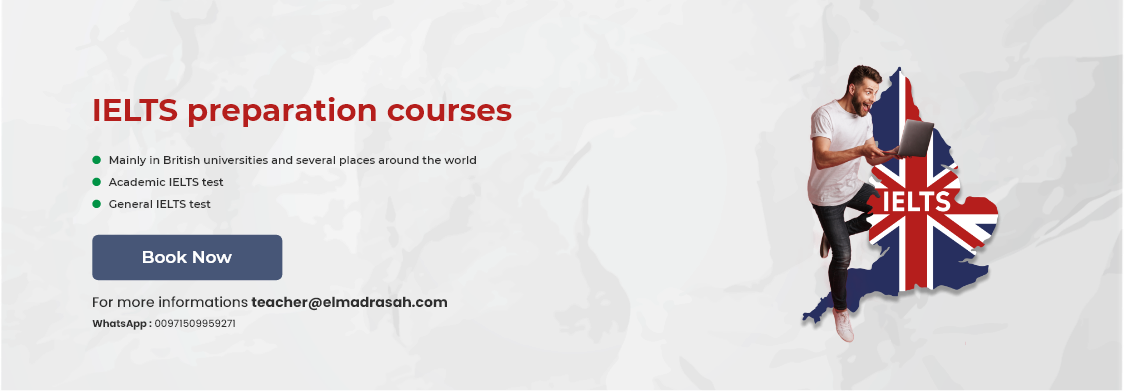
Improve Your IELTS skills Reading,Writing,Listening and Speaking Skills
In this article, we will learn how to improve our IELTS skills e will tackle each part of IELTS skills in detail. To notwaste any time let’s begin and dive straight into it.
First, do you know how can we improve our writing skills immediately? We will learn seven ways to improve our writing skills.
Improving IELTS Writing Skills
7 ways to improve your IELTS writing
- Tip number one is to stop saying (very). This word is used frequently even by native speakers but if you avoid it, your writing will immediately look stronger and more formal and that is what you need in IELTS essays. Let me show you how you can do it. To solve this problem, you can use stronger adjectives for example, instead of saying (a very important decision) say (a crucial decision), (a very big house) becomes (a massive house), (an enormous house) and replace (a very clear solution) with (an obvious solution). But sometimes you don’t know this other stronger word, in this case just leave a (very) out. You can say (an important decision), (a big house) and (a clear solution).
- Tip number two, do not begin your sentences with (there is) or (it is) because these structures are so simple and lack style so try and avoid them. Starting sentences with (there is) and (it is) is not incorrect in English but if you want to a high score inIELTS Skills writing, try not to use them often.
- The next tip is to use strong verbs. To explain what I mean, let me show you some examples: (He went around the world). The word here is (went), we can replace it and say: He traveled around the world. (To travel) has more meaning so it is stronger.Instead of saying (To get an offer from a university), you can say (To receive an offer from a university). The meaning is the same but the verb (to receive) is stronger because it has more meaning than the word (to get). It also sounds more formal. The verbs like (to go) and (to get) are so simple that make your writing look plain. The main verbs to avoid include (to be, to get, and to go).
- Tip number four is to avoid phrasal verbs in your IELTS Skills writing because you need to stick to a more formal style.For instance, instead of saying (Make up a new idea), say (Create a new idea). You can replace (Give out free items), with (Offer free items).
- Tip number five is not to use contractions or short forms like (don’t, can’t). They are used in informal language. In everyday life, English speakers use them all the time but, in IELTS, you should stick to a more formal style and full forms.
- Let’s go-to tip number 6 which is (keep it accurate). Many students think it is better to use as many complex words in their essays as possible. The problem is that it is often done to the detriment of quality; they harm the quality by using words where they should not be used. To get band 7 in the lexical resource which wastes 25% of your mark, most of your sentences should be error-free. In IELTS Skills writing, simpler and right is better than more complex and wrong.
- Tip number seven is to avoid repeating words in your essay where it is possible. This helps you prove that you have a sufficient range of vocabulary.
You can train on writing paragraphs in an appropriate way at the Academic IELTS or General IELTS by taking Preparation IELTS course for the IELTS test.
Improving IELTS Reading Skills
Second, how can you improve your reading skills?
For non-native English speakers, reading a lot of material during a busy day can be tough. Fortunately, today we will tackle some techniques that help you read more but spend less time doing it.
- First, read whenever and whatever you can. Setting aside a few minutes a day to read a book is a great way to improve your reading skills. However, if you do not the one who enjoys reading, constant even little practice will make you a better reader. You do not always have to read articles or books to improve your reading skills. Just reading anything you see in English every day: street signs, the menu, or billboards is quietly sufficient to improve your reading skills.
- Secondly, read what you enjoy and are interested in. Studies have shown that reading things you are interested in highly improves and speed up the person’s understanding of the text. To improve your reading skills doesn’t mean you should read complex or boring things. Use your own language to think about what you like reading in. For instance, do you have a favorite football club? Thinking about it and having knowledge of the content can improve your reading greatly.
- Thirdly, Use English to search for the information you need. Even if you do not have time to read, use English in your search for any information you need in your everyday life.
Learn more about both international tests: TOEFL and IELTS.
Improving IELTS Speaking Skills
Now, concerning speaking, can we improve our IELTS speaking skills by practicing and preparing at home by ourselves? The answer to that is yes and no.
- Yes, it is useful to practice at home by yourself. One of the most useful things you can do to gain an insight into where your weaknesses are and what you need to work on is to get your phone and record yourself answering some IELTS questions, preferably a whole test and like look up some questions and just look at each question and literally answer them as if you were in a real IELTS test and then record them but most importantly listen back to them and think about your grammar and think about your vocabulary, think about your pronunciation and your fluency. Most students who do that are like (oh I cannot believe I was making that mistake) (I had no idea I was making that vocabulary mistake or that grammar mistake) so what you are doing is you are raising your awareness about your common errors and this is very eye-opening for many students. So definitely that is a really good way to help you improve and it will help everything and practicing at home will really help.
- However, it is obviously not as good as working with an IELTS teacher or an IELTS expert. Not all teachers are as good as others. Work with someone who really knows what they are doing and gets results but they will be able to tell you the exact things that you need to work on; the things you are doing well, the things that you are not doing so. Well, you should combine studying at home and getting some advice from a teacher that will help you get results.
Why don’t you get a help from online private tutor?
Improving IELTS Listening Skills
Finally, how can you understand a hundred percent of IELTS Skills listening? Today, we will learn some techniques that can improve your listening skills.
Let’s get started,
- Listen, Read, Listen
The first method is (listen, read, listen). So, you need to find short audio in English of about three minutes with its transcript (the written text). First of all, listen to the audio once or twice and try to understand as much as you can. Then you take the transcript and listen to the recording again while following what has been said on paper or on the screen. If a certain moment is difficult for you, please pause the recording and listen to it again. If you can’t guess the meaning of a certain from the context, you can check it up in the dictionary. After that listen to the audio without the transcript and only use it. If you encounter a moment where you still don’t understand what has been said, find the transcript, read the beat and listen to it again and do that until you understand everything in the recording. What should you listen to? If you have the official practice test from Cambridge English, you can use the audio and the transcript in the book to practice.
Also, on YouTube, a channel BBC is learning English and they have a great playlist with 3-minute news and the transcript is written on the screen so if you don’t need it just don’t look at the screen.
- Play With Speed
The second technique is to play with speed. Take a short video and listen to it at the normal speed and then slow it down, you will be able to understand much more. Then listen to it again at the normal speed and you will still be able to hear things after that try to accelerate the speed, you will find yourself able to hear everything. This technique will really help your ear to get used to faster speech. It really matters how much time you spend listening to things in English.
- Turning Boring Time into Listening Time
I think, spending at least an hour a day listening to English can highly improve your listening skills. Do you know how? It is by turning boring time into listening time; when you are commuting to work, when you are cooking food, or waiting for someone, you could listen to an audiobook in English.
IELTS review two sessions review will learn you the techniques of the listening section in the IELTS Skills test.
In the end, I hope you benefit from these techniques to improve your IELTS skills. To conclude, while practicing at home can noticeably improve your IELTS skills, professional training is the best, so if you can find a very good IELTS training course, that is the best choice. Make sure you choose wisely, and of course, you can visit our website elmadrasah.com we have online training courses that will help you get the highest band scores.
















